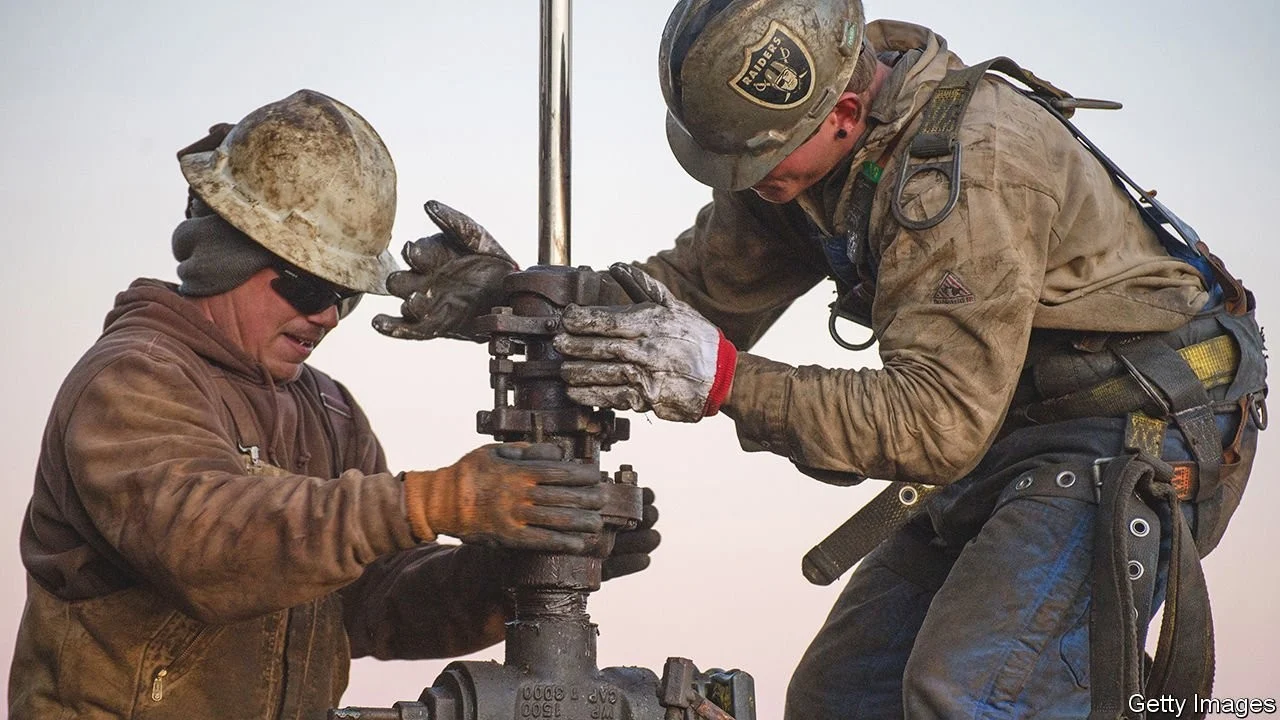DAKAR — AT FIRST GLANCE it appears that 2022 will finally herald some good news for sub-Saharan Africa. In contrast to most of the world, growth is expected to accelerate. This partly reflects the region’s torrid 2021. While much of the world enjoyed a vaccine-fuelled recovery from covid-19, less than 5% of Africans were fully jabbed by October. So, while in 2022 most other regions will naturally slow, Africa has lots of room to improve.
Still, for the sub-Saharan region overall, the imf forecasts just a 0.1 percentage point increase in growth to 3.8% for 2022. This hides deep divergences. South Africa, Nigeria and Angola, which together make up about half of sub-Saharan Africa’s gdp, were in deep trouble before covid-19. Their sluggishness will continue in 2022. Those bouncing back will be relative minnows such as Rwanda and the Seychelles, which will see well above the 3.8% growth projected for the region, and medium-sized economies such as Ivory Coast and Ghana.
What has gone so wrong in sub-Saharan Africa’s big economies? In Nigeria the answer, angry locals lament, is almost everything. The region’s biggest economy is beset by a profound security crisis. Boko Haram and other jihadist groups are terrorising the north-east. In the north-west gangs of armed bandits kidnap people and extort farmers by blocking access to their fields. The government has shut schools and markets and even blocked telecoms networks in much of the north-west as it tries to bomb bandit hideouts. Meanwhile, separatists in the south-east are frequently demanding that people stay at home in protest against the federal government. All this causes disruption for farmers, traders and anyone else trying to do business.

Nigeria’s economy is also deeply reliant on oil. gdp per person may again fall in 2022, as it has every year since 2015, when crude prices fell sharply. Terrible roads, power cuts and erratic policymaking all exacerbate the problems. Rising oil prices could bail Nigeria out in 2022, if its creaking wells can pump enough. But the return of easy oil money will reduce pressure on politicians to get serious on diversifying the economy.
Angola is also heavily dependent on oil. President João Lourenço, who took over in 2017, wants to diversify but that will take time. For now a rising oil price might help consolidate a recovery after five years of recession. But the country is struggling to pump enough barrels to take advantage. Angola is deeply in debt, especially to China, and there is rising anger among the struggling population who saw elites quaffing champagne in the earlier oil-boom years, but got little themselves.
Oil is not to blame for South Africa’s struggles. Instead, crony capitalism, blackouts and scant investment left it in a second recession in two years before the pandemic hit. The virus then pushed unemployment above 30%. Anger at decades of graft and the failing economy helped fuel riots in July. With a large mining industry, South Africans’ hopes for a brighter economy in 2022 rest in part on high prices for what they dig up. But it will take longer to fix the deeper problems.
Yet there is good news, too. The imf says Rwanda will hit 7% growth in 2022. Benin should muster 6.5%. The Seychelles, welcoming back tourists, could reach 8%. Ghana, Ivory Coast and Senegal should all get near their brisk pre-pandemic growth rates. These economies have one big thing in common: none is reliant on oil or mining. Many also have a recent track record of investment in infrastructure such as roads and broadband cables, a commitment to further diversification, and a willingness to unshackle the private sector.
They still face troubles, from political strife to rising debt levels. And they, too, were battered by the pandemic. Without help filling the financing gap, the long-term damage to health and education could be “huge and frightening”, worried Ken Ofori-Atta, Ghana’s finance minister, in 2021. Yet these places will at least grow robustly in 2022, making a difference in all areas, from debt management to poverty reduction.
South Africa, an upper-middle-income country, sometimes likes to see itself as standing apart from the continent. Yet the last time its gdp grew by 6% was more than 40 years ago. Nigerians like to point out that the economy of just one state, Lagos, is larger than that of Ghana. Yet the imf predicts that Ghana will grow by 4.7% in 2021, as Nigeria manages only 2.6%. Size is not everything. In 2022 and beyond, the big boys would do well to learn from the vigour and diversification of some of their smaller neighbours.
By Kinley Salmon: Africa correspondent, The Economist, Dakar




